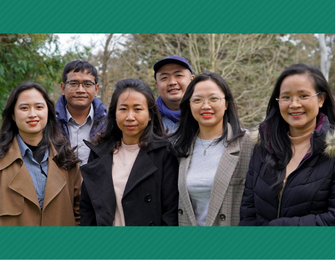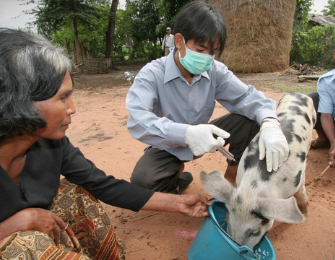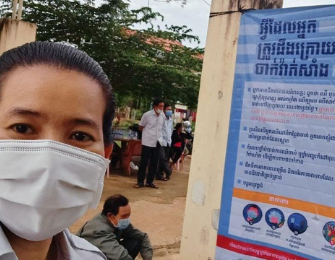Infectious disease modelling can predict how a disease is likely to progress over time and provides information about the likely outcome of an outbreak. This information can be used to inform public health interventions.
Through the Strengthening Preparedness in the Asia-Pacific Region through Knowledge (SPARK) program, there will be a cohort of students and researchers in leading universities in Vietnam, Indonesia and Thailand who can manipulate, analyse and use data for public health decision making. In addition, partnerships established between researchers and public health policy makers will enable policy makers to translate the research into policy.
In addition, Papua New Guinea and Indonesia will have innovative and region-specific methods and tools for malaria elimination complimented with malaria control program staff who can apply modelling results to policy. This will demonstrate how modelling can be used to improve both effectiveness and efficiency of health interventions.
Formal Training for Health Informatics Students and Researchers
This project will provide scholarships and develop in-country partnerships between universities and institutions in Thailand, Vietnam, Indonesia, Cambodia, Papua New Guinea and Australia to increase regional expertise in disease modelling. The project will fund scholarships for 2 post-doctorate positions (one at Mahidol, one at Pasteur Institute of Ho Chi Minh City), 4 PhD positions (2 each at Mahidol and Pasteur Institute of Ho Chi Minh City) and 12 scholarships at Mahidol University for either a graduate diploma or masters in Biomedical/ Health informatics. Additional funding will be made available to scholarship recipients to enable them to participate in learning opportunities such as workshops, short courses, study exchanges and twinning arrangements.
In-country training to policy makers
A series of intensive modelling training and data literacy workshops will be conducted through the Pasteur Institute of Ho Chi Minh City in Vietnam and the Eijkman-Oxford Clinical Research Unit in Indonesia. Training will be co-developed with regional partners on topics including health informatics, mathematical and economic modelling, and how to effectively use data for policy decisions. Training will be a series of in-country workshops for relevant policy makers. This is a crucial step for policy makers to be able to use data, research, analysis and models that are created for government use.
Using models for policy development
Researchers from Papua New Guinea and Indonesia will work with Australian researchers to develop malaria control tools and modelling to assist policy makers with decision-making on best approaches to malaria elimination. Once developed, staff in partner countries will be trained to use of these models and tools for decision making. The work in malaria control will become an example of how to apply modelling research to public health decision making more broadly.




